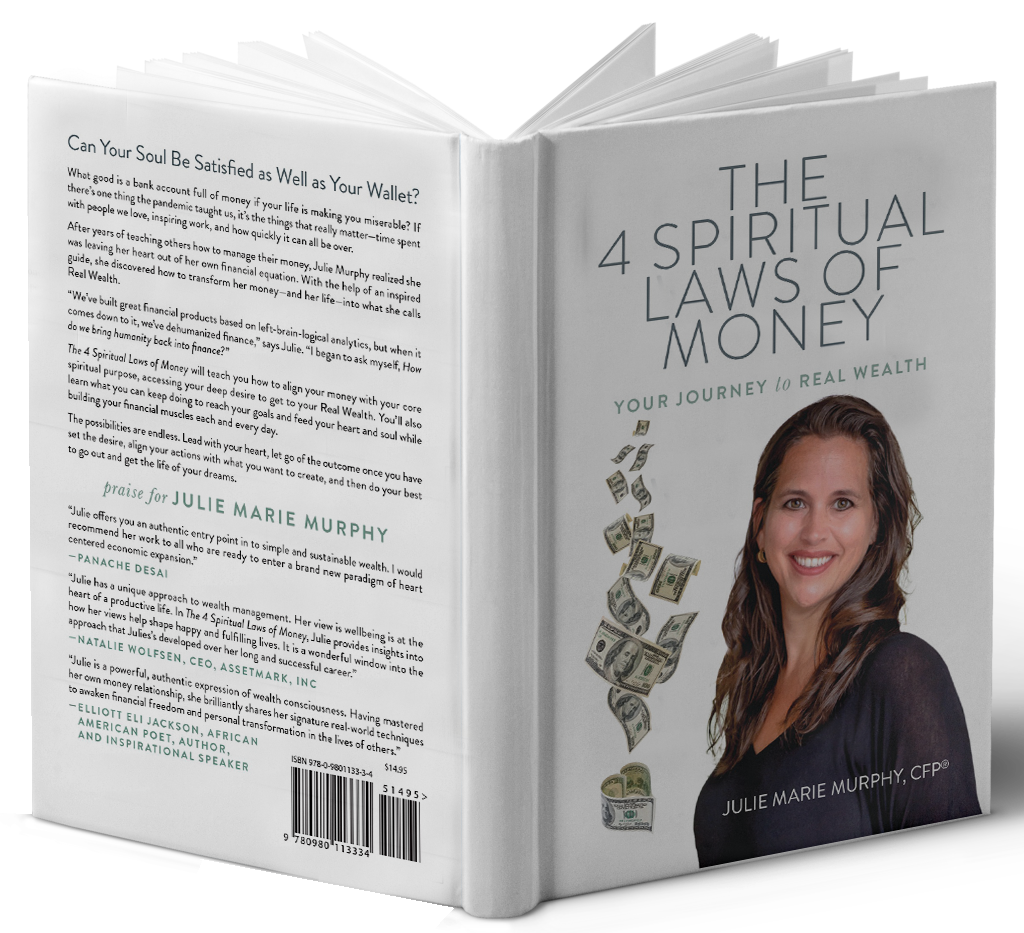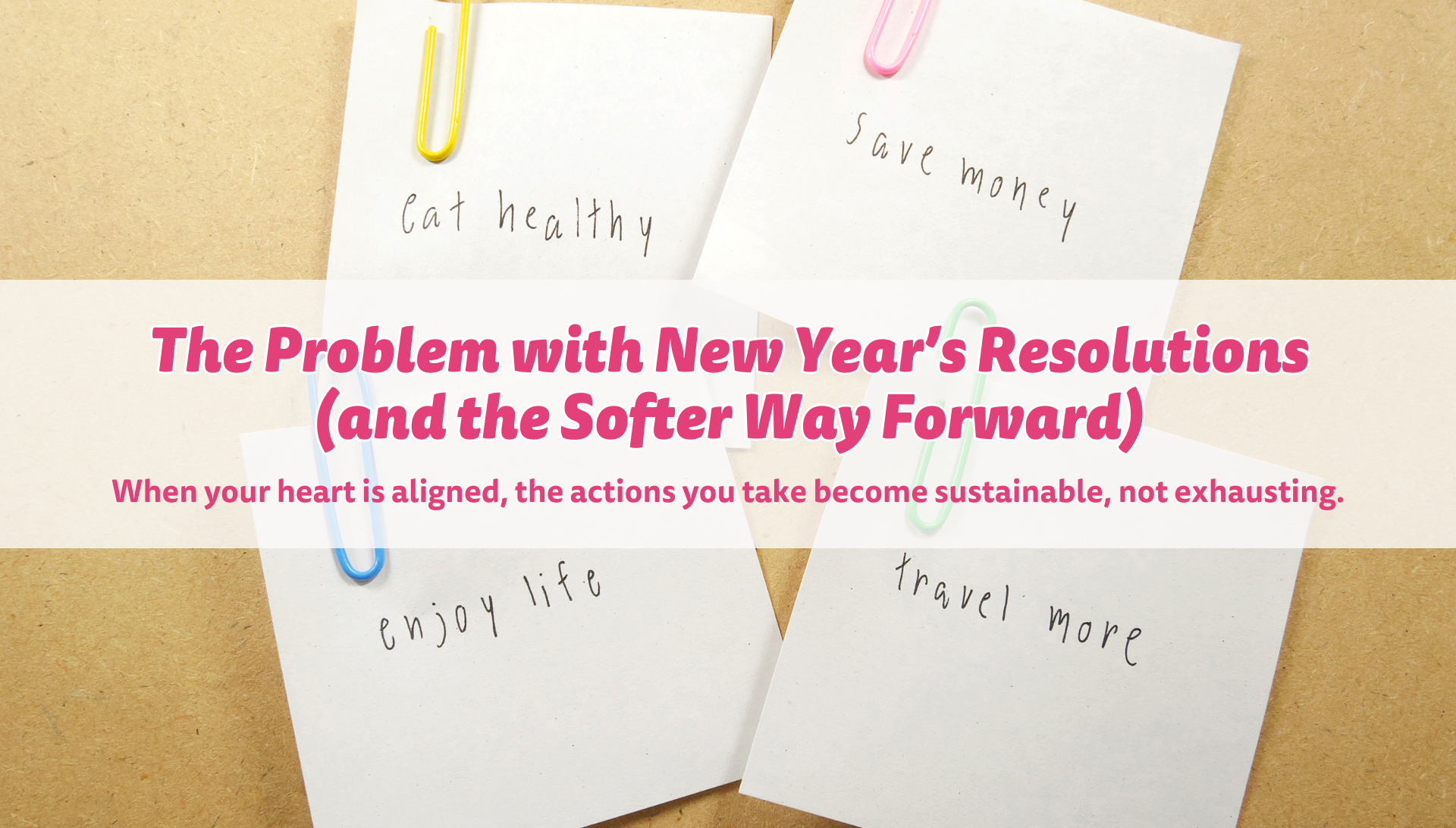Financial Abundance
Start Where You Are
If your current financial reality is far from your ideal, the first step is letting go of all shame, blame, and judgment about your situation. The way you let go is by being with those feelings when they come up, accepting where you are without self-incrimination. While many of us try to numb our emotions with food, excessive spending, or other addictions, when we’re willing to just sit with our feelings without trying to push them away, they lose their power over us.
If you want long-term financial sustainability, you need to meet yourself exactly where you are and find a compelling reason to change. When you explore what you really want for your life, you will find your compelling reason in your dreams and desires.
I’ve spoken to many people who ask, “How can I even think about my dreams and desires when I have a mountain of bills to pay?” My response is that if you do what you’ve always done, you will get what you’ve always gotten. Therefore, if you keep focusing only on bill paying, then that is all you will ever create. It’s important to shift your financial focus, even as you continue to pay your bills, to where you would like to be, to your dreams and desires.
First, look at your monthly expenses, your cash outflows. It’s about bringing consciousness to your spending, consciously choosing where you want your money to go. Today many of us spend on things that were important to us in our past and no longer serve us for our desires today. Here’s a simple example. I have a client who loves movies and chose to subscribe to all the cable TV movie channels, which cost her about $140 per month. As she began to look at her monthly expenses, she realized that she only watched eight movies a month and that it would be less expensive to watch them “on demand” and pay per movie instead of subscribing to the movie channels. This small shift saved her about $50 per month, and she is now putting $25 towards paying down her debt and $25 into her saving account to build a reserve in case she loses her job.
Once you look at the money going out, compare it to what is coming into your checking account each month. Have you come up with a positive or negative number? Remember, money is currency. The word currency comes from the root word current. What does a current do? It flows. Do you have a positive flow or a negative flow?
The second step is to categorize your expenses into three groups:
1) Paying for your past choices
2) Spending to support your present moment
3) Saving for your future
What percentage of your current income are you spending paying for past choices? If you are like many people, you are spending most of your current income paying for past choices – car loans, mortgages, credit card payments, student loans, etc. How can we happily live in the present moment when we are constantly paying for our past, let alone even think about planning for your dreams and desires for your future?
Create Financial Space
The solution is to begin today to create more financial space in your life. Even by taking very small steps, you will start to empower yourself and create the space into which abundance can flow.
1) Look at your monthly expenses and zone in any areas of cash outflow that are not a priority for you today. Estimate the total spending you can eliminate from your budget each month and intentionally shift those dollars to:
• ⅓ paying off more debt
• ⅓ spending on lifestyle. (This is money you can spend on items beyond the necessities of clothing, food, and a warm place to sleep. It’s up to you to prioritize your desires. For example, you can decide you want to spend an extra $50 per month on shoes, entertainment, or dining out, or you can put the money into a vacation fund.)
• ⅓ investing for your future (retirement accounts, 401Ks, savings and bonds, etc.)
2) Become your own bank! When you finish paying off a large loan, such as a car loan, intentionally take that dollar amount each month and direct deposit it into a separate savings account that is only to be used for your next car purchase.
3) Be proactive with your credit card debt. Go to a web site such as www.bankrate.com or www.creditcards.com to look for offers from credit card companies that will allow you to transfer your balance to a lower interest rate – ideally to 0% interest. You may also want to consider credit union loans.
Should I Save Money or Pay Down my Debts?
A frequent question I receive is whether it’s better to first pay off all of your debts before you start saving money. From a purely financial perspective, the interest you are paying may be more than the interest you could earn on your savings or investments. In this case, you may decide to not save at all and only pay down debt. However, I have found those who stick to this strategy only keep recreating their debt because when an emergency happens in life and you have no emergency reserves, what are you going to do? Yes, you will charge it!
Creating true abundance is about empowering yourself and no longer being a victim of your financial circumstances; it’s about taking charge and getting in the flow. If your interest is higher than what you are making in your savings account, shift this money to a 0% credit card, or refinance your house. If your credit score is too low to do so, consider hiring a company like www.veracitycredit.com to assist you in cleaning up your credit reports. You can also visit www.Transunion.com , www.Experian.com , or www.Equifax.com and refute the negative items on your credit reports yourself.
Once your credit is cleaned up, then shift the debt to better rates. In deciding how much to put into savings, it’s important to do at least something, even if it’s only $10 per month. The key is to begin to shift your financial energy. Then, every time you get a pay raise or bonus, decrease your expenses, or pay off some debt, take at least ⅓ or ½ of that money and apply it to your savings or investments monthly. You’re making a conscious choice and acting upon it. Be sure to make this savings “automatic” using some kind of direct deposit that transfers your money directly from your checking account to your savings or investments. If you don’t, you may sabotage your good intentions and end up spending instead of saving. Position yourself to be “lucky” by paying yourself first.
Once you begin this process of creating financial space in your life, you will begin to reclaim your personal power. Name your dreams and desires and invite them to fill the space you have created. By putting these financial strategies into action, you can begin living the life that you want today.
The post Financial Abundance appeared first on Julie Murphy.
Share Blog On Social
Recent Blogs

Similar Blogs







